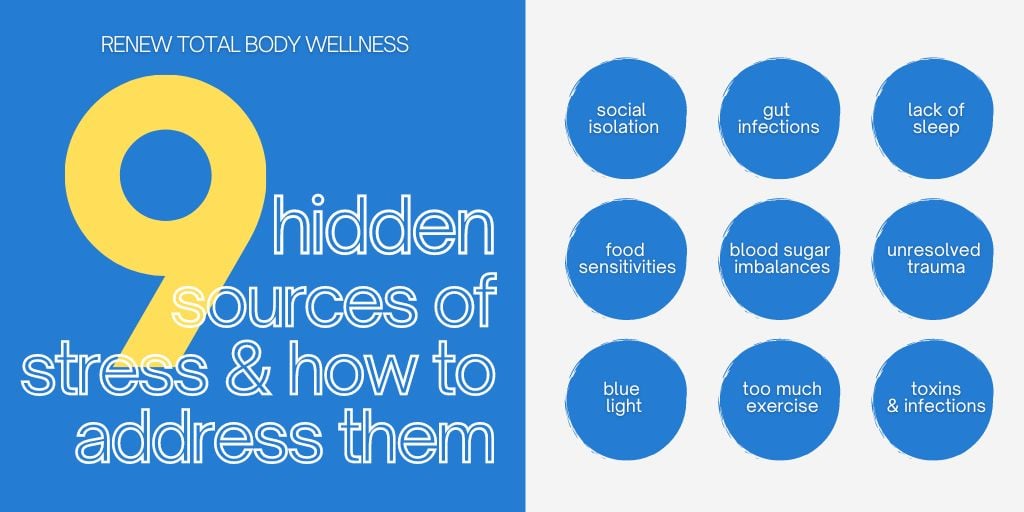In today's fast-paced world, prioritizing wellness is more important than ever. Among the various tools available to enhance well-being, the infrared sauna stands out as a powerful ally. Let's...
5 Reasons You're Not Losing Weight
Embarking on a weight loss journey can be both empowering and challenging. Despite your best efforts, you may find yourself hitting a plateau or struggling to shed those stubborn pounds. If you're feeling frustrated and wondering why you're not seeing the results you desire, you're not alone. In this blog post, we'll explore five common reasons why you may not be losing weight and offer practical solutions to help you overcome these obstacles.
- Underestimating Caloric Intake: One of the most common reasons for stalled weight loss is underestimating the number of calories you consume. Even if you're eating healthy foods, consuming too many calories can hinder your progress. Conversely, in some cases, people cut too many calories which can also hinder weight loss. In either case, keep track of your food intake using a food diary or a mobile app, and be mindful of portion sizes. Consider using measuring cups and kitchen scales to ensure accuracy, especially with calorie-dense foods.
- Lack of Physical Activity: Regular exercise is crucial for weight loss and overall health. If you're not seeing results, it may be because you're not moving your body enough. Aim for at least 150 minutes of moderate-intensity weekly exercise, such as brisk walking, cycling, or swimming. Incorporating strength training exercises helps build muscle mass and boost your metabolism, leading to more effective weight loss.
- Lack of Sleep: Quality sleep is essential for weight management and overall well-being. Not getting enough sleep can disrupt hormone levels, increase cravings for unhealthy foods, and sabotage your weight loss efforts. Aim for seven to nine hours of uninterrupted sleep per night and prioritize creating a relaxing bedtime routine to improve sleep quality. Avoid stimulants like caffeine and electronic devices before bedtime and create a comfortable sleep environment free of distractions.
- Stress and Emotional Eating: Stress can have a significant impact on your eating habits and weight. Many people turn to food for comfort or distraction during times of stress, leading to emotional eating and weight gain. Find healthy ways to cope with stress, such as exercise, meditation, deep breathing exercises, or spending time in nature. Practice mindful eating by paying attention to your hunger and fullness cues, and seek support from friends or family if you're struggling to manage stress and emotions.
- Medical Issues: Sometimes, underlying medical conditions can hinder weight loss efforts, despite your best intentions. Hormonal imbalances, thyroid dysfunction, insulin resistance, polycystic ovary syndrome (PCOS), and other health issues can affect metabolism, appetite regulation, and energy levels, making it difficult to lose weight. If you suspect that a medical condition may be contributing to your weight struggles, it's essential to consult with a healthcare professional. They can conduct appropriate tests, diagnose any underlying issues, and develop a tailored treatment plan to address your specific needs. By addressing medical issues that may be impacting your weight, you can better manage your health and improve your chances of successful weight loss.
Losing weight can be a challenging journey, but by identifying and addressing the factors that may be hindering your progress, you can overcome obstacles and achieve your goals. Whether it's tracking your calorie intake, increasing your physical activity, identifying underlying medical issues, or prioritizing sleep and stress management, making small changes can lead to significant results over time. Remember to be patient with yourself, stay consistent, and celebrate your progress along the way. With determination and perseverance, you can overcome any obstacle and achieve sustainable weight loss.
You Might Also Enjoy...
In today's fast-paced society, stress often feels like an unavoidable part of life. But what if you could equip yourself with the right nutrients to bounce back stronger from life's challenges?
In the hustle and bustle of everyday life, stress can often lurk in unexpected places, impacting our well-being in profound ways. Living with unaddressed stress makes it nearly impossible for our...
Dandelions cannot grow in concrete. Likewise, viruses cannot take root in a strong immune system. Doc offers recommendations to build and strengthen your immune system to help your body defend against disease.
Levi has overcome more obstacles than most in his six short years of life. Levi was born at 28-weeks weighing just three pounds. He had a grade 3 bilateral brain bleed, seizures for his first several...
Restorative sleep is vital to overall wellness, detoxification from daily toxins, and healing. Getting a good night’s rest is one of the best things you can do for your body. Conversely, lack of...









